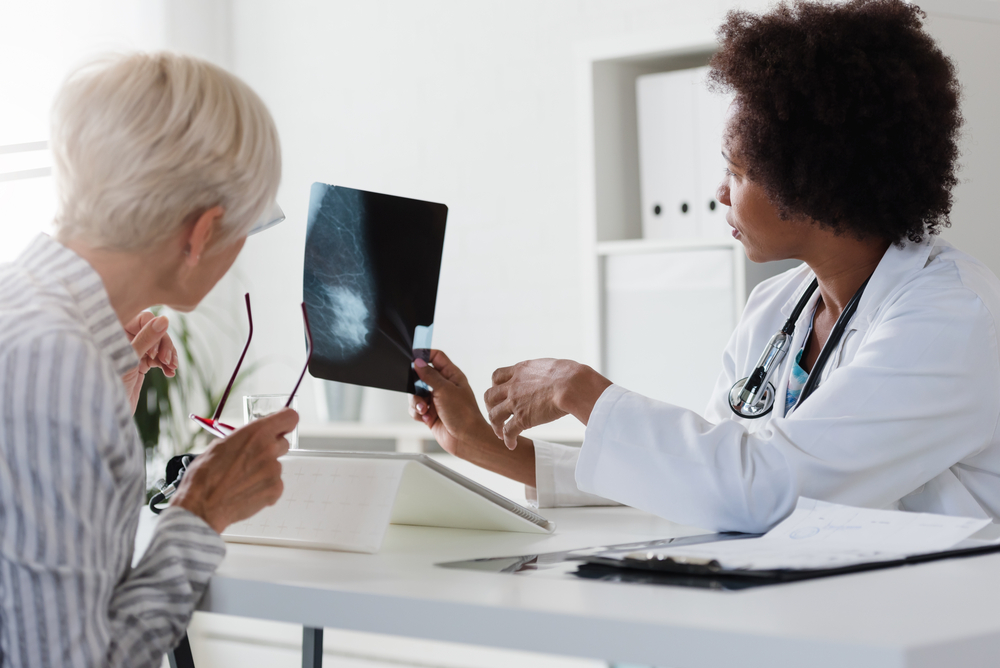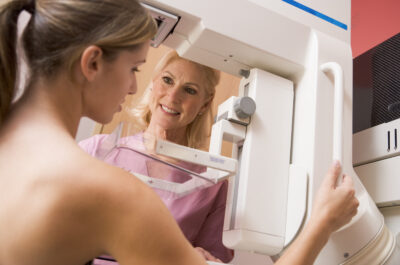Have you ever wondered, “What is a mammogram?” This procedure is an x-ray picture of the breast taken for early detection of breast cancer, generally done as part of OBGYN services. The exam requires the patient to stand before an X-ray machine, and a technologist places the breast between two plates. They then take images of the breasts by performing an X-ray.
A mammogram is an X-ray examination done on women for early detection of breast cancer. Women with no signs of breast cancer can also undergo screening in a healthcare facility to ensure early diagnosis of any issues. Then, with the help of this procedure, diagnosis is easy.
[bctt tweet=”What is a mammogram? Learn what it is, the types available, and the benefits of having a mammogram.” via=”no”]
Why is it Needed?
Mammogram plays a significant role in breast cancer screening because specialists can use them to detect breast cancer before the signs and symptoms are visible. That being said, an abnormal mammogram doesn’t always mean you have cancer.
If the specialist notices an abnormal reading on the X-rays, they’ll consider more imaging and tests until they can rule out the reason for the abnormal area.
You can stay safe from breast cancer by doing mammograms according to the recommended time intervals. There’s no harm from radiation exposure from an examination. The machines are modern and produce a low amount of radiation.
Types of Mammograms
There are two types of mammograms:
- Screening mammogram: A screening mammogram is suitable for women with no signs of breast cancer. The technologist takes two X-rays of each breast to look for cancerous lumps and other breast problems. This procedure can also detect tumors in the earliest stages you cannot feel by physical examination.
- Diagnostic mammogram: A physician performs a diagnostic mammogram on patients with breast changes like lumps, nipple discharge, and changes of shape and pain. This procedure is also vital if the screening mammogram shows any breast abnormalities.
Reasons For Needing One
You need this type of checkup if you feel changes in your breasts. For example, it could be a developing lump, discharge, pain, or change in shape. You should also seek help if you have abnormal nipples and experience swelling.
Avoid going for a mammogram exam a week before or during your period. Your breasts are tender, and you will experience discomfort and pain. If you are pregnant, inform the health care provider beforehand.
Frequently Asked Questions
1. What is the recommended age for women to start getting regular mammograms, and how often should they be done?
Mammograms are typically recommended for women starting at the age of 40 or earlier if they have a family history of breast cancer. The frequency of mammograms can vary depending on individual risk factors and medical guidelines, but generally, women should have them every 1-2 years. It’s essential to consult with your healthcare provider to determine the best schedule for your specific situation.
2. What preparation and aftercare should women do for a mammogram?
Before a mammogram, it’s advisable to avoid using deodorant, lotions, or powders on the chest area, as they can interfere with the imaging. On the day of the appointment, wear a two-piece outfit for ease of examination. After the mammogram, there’s typically no special aftercare required. Some women might experience mild discomfort or breast tenderness, but it usually subsides quickly.
3. What are the potential risks and benefits of a mammogram?
Mammograms are a crucial tool for early breast cancer detection, which can significantly improve the chances of successful treatment. For women with a family history or other risk factors, they are even more important. While mammograms involve a small amount of radiation, the benefits of early detection usually outweigh the minimal risks. It’s essential to discuss your individual risk factors and concerns with your healthcare provider to make an informed decision about mammogram screening.
Let PHC Help
We hope this blog answers your question about this health procedure. As mammograms are a part of our OBGYN services, we are happy to book a consultation with new and returning patients anytime.
Contact us today for more information on our healthcare services.




